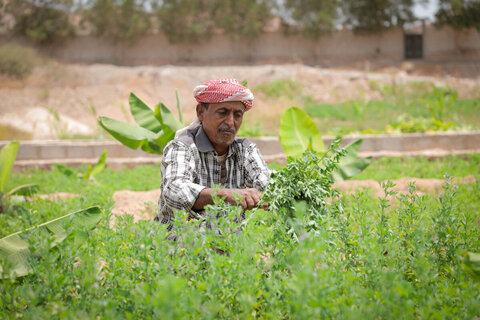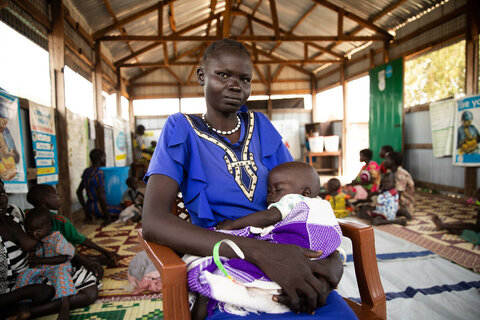When life is uncertain, take it one day at a time
Ibtisam Alghofargi carries the world on her shoulders but shrugs it off for the sake of her nine children.
"On the first day of every month, the landlord bangs on the door and demands the rent," she says. "This is the only thing I can predict. For everything else, I put my hand on my heart and pray."

Their story starts in 2012, when heavy bombing closed in on their neighbourhood in Idleb, Syria. They waited for nightfall to walk away from what she described as certain death.
At first, they sheltered in a mosque, but when that too came under fire, they hired a van to take them to Lebanon. All they had when they arrived was each other and their passports.
Survival in Lebanon
"Now I'm the mother, the father, the cook and the doctor," says Ibtisam. "I feel so guilty that I send my daughter to work, but we have no other choice."
Ibtisam and her family live in a rundown flat in Nabaa, one of Lebanon's poorest neighbourhoods, and survive on the wage her 14-year-old daughter earns at a local clothing shop and food aid from the World Food Programme (WFP). The stability of both is uncertain.
Schooling, clothing and even shampoo are luxuries Ibtisam's family cannot afford.
All of their money pays the rent and whatever is left over is rationed to buy medicine for her daughter's thyroid disease and severe asthma, and her son's shrapnel injuries from Syria that still haven't healed properly. During the winter, the other children suffer chronic bronchitis and asthma from the poor ventilation and lack of heating.
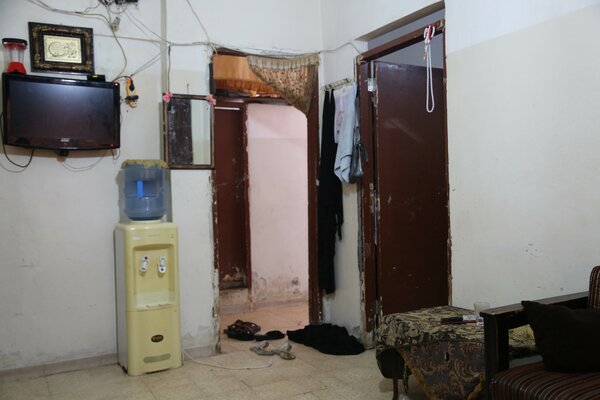
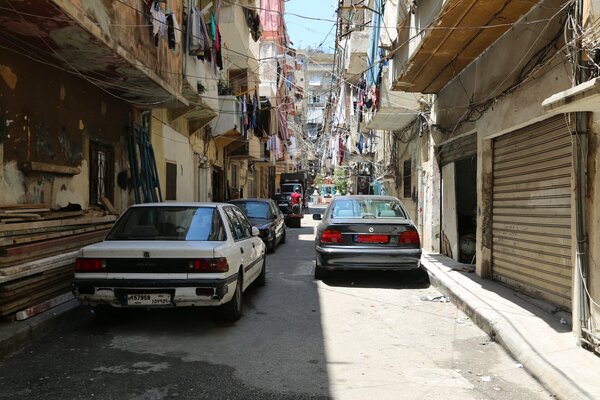
The waiting game
WFP helps almost 700,000 Syrian refugees in Lebanon with debit cards that are automatically loaded with cash every month, so families can buy food from local supermarkets.
In 2015, WFP was forced to cut this support by half, pushing thousands of Syrian families into hunger and desperation. Many families pulled their children out of school so they could work to feed the family, causing child labour rates to increase. While the exodus to Europe was rooted in many factors, hunger was a critical push factor driving international migration.
Ibtisam says a tiny bit of hope and the debit card are keeping her going. Without it, she would take her family abroad — despite the risky journey.
For the vast majority of families like Ibtisam's, food assistance is the only humanitarian support they receive in Lebanon. Many share a crippling fear that this lifeline could be cut again.
"If our food card is cut again, we will die of hunger," she says. "My heart breaks when the kids are hungry and I have nothing to feed them.
When the money on the card runs out, Ibtisam borrows food from neighbours or begs the supermarket for some bread or rice.
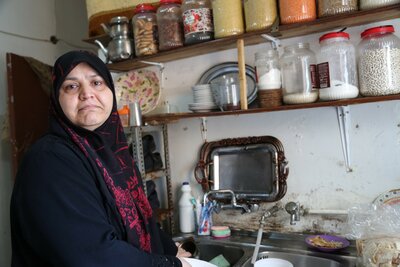
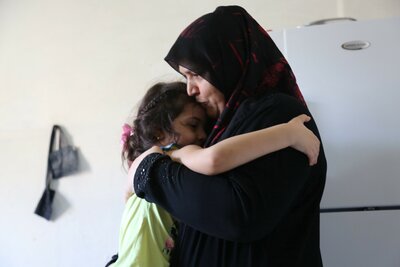
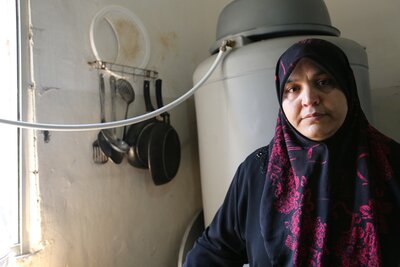
The day they fled Idleb was the last time Ibtisam saw or heard from her husband. He stayed behind with the older members of the family who wouldn't have endured the journey. Ibtisam tries to keep his legacy alive by promising her children that their future will be better.
"My husband believed in the power of prayer and positive thinking," she adds. "So I try to smile and take life one day at a time."

